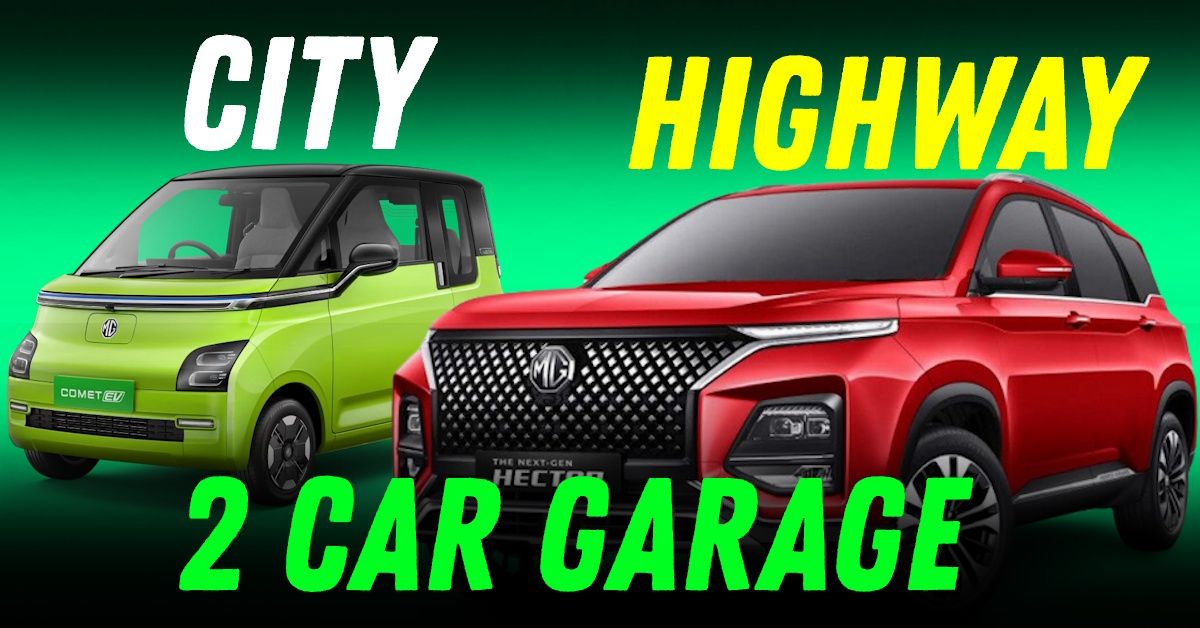Why Most EV Owners In India Still Keep A Petrol Car


Despite the growing popularity of electric vehicles (EVs) in India, a surprising trend has emerged—most EV owners continue to maintain a traditional petrol vehicle alongside their electric cars. A recent survey by Park+, an Indian automotive super app streamlining car ownership with parking solutions, FASTag management, and more, reveals that a startling 51% of electric vehicle owners in India are considering switching back to internal combustion engine (ICE) vehicles for their next purchase. This article explores the practical reasons behind this dual ownership pattern, focusing on the challenges of range anxiety and infrastructure limitations that continue to affect India's EV landscape in 2025.
The electric vehicle market in India presents a complex picture. While the government pushes for greater adoption through incentives and policies, ground realities tell a different story. EV sales have started showing signs of decline globally, with the Indian market following this downward trend. Electric scooters have managed to capture nearly one-fifth of the two-wheeler market, but electric cars account for only about one in fifty cars sold currently.
A survey of 500 EV owners across Delhi NCR, Mumbai, and Bengaluru revealed that satisfaction levels among EV owners are noticeably lower than those who drive petrol or diesel vehicles. This dissatisfaction stems primarily from everyday practical challenges rather than conceptual issues with electric mobility.
The most significant hurdle facing EV owners is not just the often-cited range anxiety but rather "charging anxiety." A staggering 88% of surveyed EV owners report experiencing this phenomenon. While range anxiety refers to concerns about battery capacity, charging anxiety relates to the uncertainty of finding functional charging stations when needed.
As of early 2025, India has approximately 12,146 public charging stations nationwide—translating to just one charging point for every 135 EVs on the road. This ratio pales in comparison to countries like the United States (1:20) and China (1:10), where charging infrastructure is considerably more developed.
Even though the number of charging stations is projected to grow to over 9,000 public and semi-public charging points by the end of 2024, most of these are slow chargers. With newer EVs featuring larger batteries, charging times will only increase unless a robust network of fast chargers becomes widely available.
Maintenance costs represent another significant pain point, with 73% of EV owners expressing concerns. The specialised technology in electric vehicles often leaves local mechanics ill-equipped to handle even minor issues. This forces owners to rely exclusively on authorised service centres, resulting in higher costs and less transparency in repair pricing.
Another worry involves the resale value of electric vehicles. Approximately 33% of surveyed owners reported receiving significantly lower resale quotes than expected. Unlike traditional vehicles, where age and mileage provide straightforward valuation metrics, EVs lack standardised testing methods to evaluate battery condition—a component that constitutes about 30% of the vehicle’s value.
Given these challenges, many Indian EV owners have adopted a practical compromise—keeping a petrol vehicle as backup. This approach allows them to enjoy the benefits of electric mobility (lower running costs, zero emissions, smoother driving experience) for daily city commutes while having the reliability of an ICE vehicle for longer journeys.
This dual ownership strategy addresses several key concerns:
• Freedom from charging anxiety during longer trips
• Availability of a backup vehicle when charging isn't possible
• Access to the extensive petrol station network for longer journeys
• Lower stress during maintenance periods
Despite current challenges, the future of India's EV ecosystem looks promising. Several upcoming electric car models are scheduled for launch in 2025-2026, including offerings from Maruti, Tata, Audi, MG, and Toyota. Continued government support through policies and expanding charging infrastructure may eventually reduce the need for this dual-vehicle approach.
However, until charging infrastructure reaches a critical mass and maintenance networks become more standardised, many Indian EV owners will likely continue their pragmatic approach of keeping a petrol vehicle as backup while enjoying their electric cars for appropriate uses.